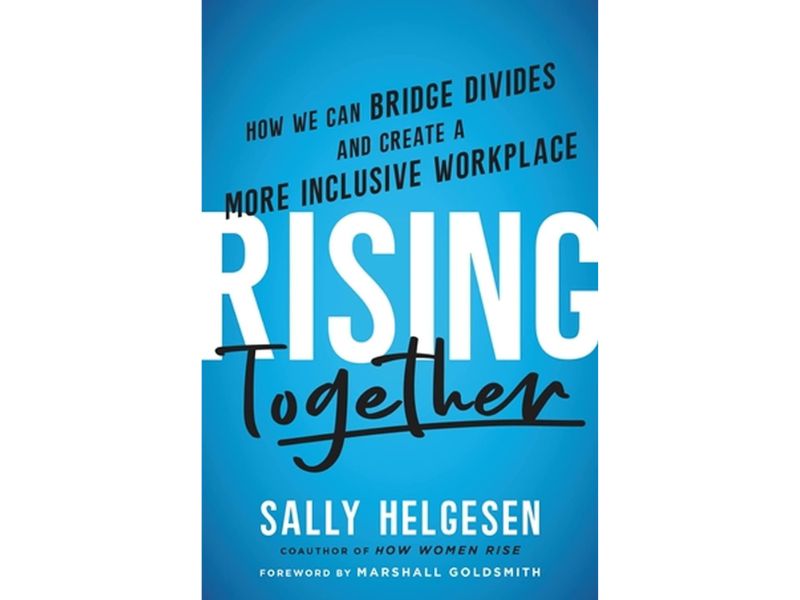Resilience is a vital quality in both our working and personal lives. It stops us going into meltdown mode when things go wrong and can enable us to bounce back stronger after facing a challenge.

Resilience is not a fixed quality; we can grow and improve our levels of resilience and here are some practical tips to help you do this:
Become comfortable with being uncomfortable
For us Brits, there are many situations in life that can make us feel awkward and uncomfortable – it can be something as small as catching someone’s eye at the wrong time or as big as having to speak in public. And for the most part we try and avoid these situations as we don’t like feeling awkward. But one sure way to build resilience is to become comfortable with the idea of being uncomfortable.
We live in a volatile world, where the future is difficult to predict. The ability to manage uncertainty in today’s world can give you a huge advantage. Life will undoubtedly throw you curveballs, it’s how we manage them that counts. The more time you spend in the zone of discomfort, the more equipped you’ll be to live with unpredictability.
It may start with small things like speaking up in a meeting when there is something you disagree with or striking up conversation with a stranger, but every time you take yourself outside your comfort zone you’re building resilience, which will help you overcome challenges as they arise in life.
Workout harder
What is the relation between exercise and resilience, if there is one? Firstly, our mental and physical health are intrinsically linked and when we have a healthy body, we can withstand more, mentally. But the evidence runs deeper than that. An interesting study by sports psychologist Tim Noakes found that the brain controls our levels of physical exertion during exercise.
It is widely presumed that when our bodies get tired during our workouts, it’s because we have reached our physical limits; our muscles run out of oxygen, we run out of fuel or we accumulate too much lactic acid. But Noakes challenges this presumption; he theorised that it could actually be the brain that imposes this fatigue, acting in advance of our physical limits. The brain makes us feel tired and subsequently forces us to stop exercising to preserve our energy and ensure we don’t impose any damage to the body.
He tested this theory further with a group of cyclists – he asked them to ride exercise bikes with wires attached to their legs. Noakes found that as the cyclists neared exhaustion, muscle fibres were being switched off. But at the point when the cyclists felt too fatigued to continue, Noakes measured that they were never activating more than about 50% of their available muscle fibers. Their brains were over-cautious; their muscles were at nowhere near at their capacity.
What has this got to do with resilience? Through pushing through the physical limits the brain sets for us and learning to tolerate physical discomfort, we can build a mental resilience which can transfer in to other areas of our lives. It’s training the brain to carry on when things get hard, to prove that we are capable of more than we thought we were.
It’s the mental discipline to push yourself to your limits even if it feels uncomfortable. Learning to carry on through that discomfort can be the breakthrough moment in both fitness and in life.
Change your attitude towards failure
There are some cultures and companies where failure is celebrated. Instead of viewing it as a negative, it can be viewed as an opportunity to learn; a way to rule out something that we know won’t work in the future. We should think of every failure as a success and when we have this mindset, those set-backs we face don’t seem so bad. Whenever something goes wrong or not the way we planned it, we can analyse it and try to see what we can learn from it. There’s a lesson in every mistake if you look hard enough. Instead of thinking ‘why me’ you could say thank you for the opportunity to learn and grow.
The truth is, nothing great can be achieved without experiencing failure first. As Thomas A. Edison famously quoted “I have not failed. I’ve just found 10,000 ways that won’t work.” Every time things don’t go your way remind yourself, that you’ve simply found another way that won’t work which most likely means you’re one step closer to success.
Develop a positive focus
We weren’t all born with a rosy outlook on life, thanks to our evolutionary origins. Humans suffer from what can be known as the negativity bias – it means the brain is always on the lookout for potential threats and we’re always thinking about what could go wrong (which was useful when life-threatening situations were much more common). This can lead us to live in quite a negative state of mind, which doesn’t help us recover when challenges arise. But we can rewire the neurological pathways to the brain, offering us a more positive outlook on life. You can set yourself little challenges, like on your next journey to work try to pick out 5 positive things. Or at the end of each day, pick out your top 3 highlights of the day.
Slowly your brain will get used to looking out for the positives and that will become your more natural state of mind. Having a positive mindset makes the world of difference when overcoming difficult situations in life.
About the author
Mel Hales is the director of Rush Talent Collective, a training consultancy specialising in wellbeing at work www.rushcollective.co.uk.








